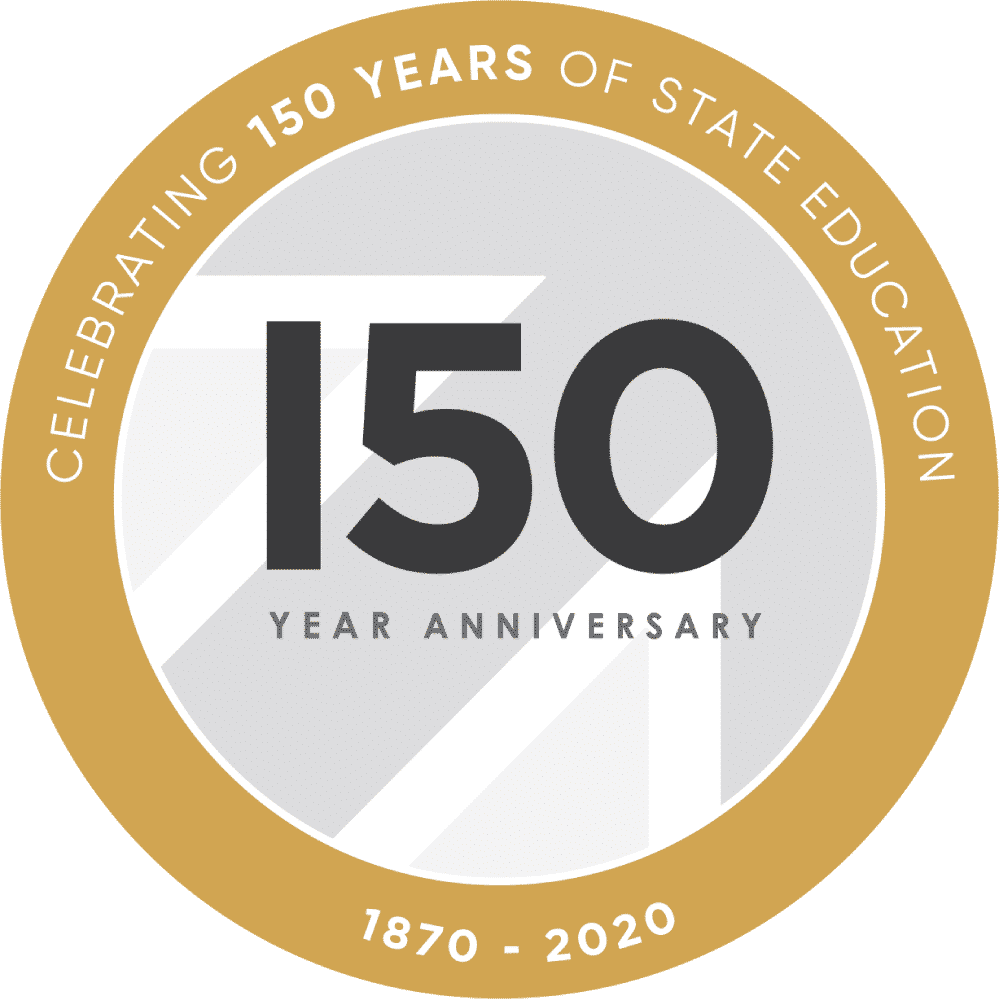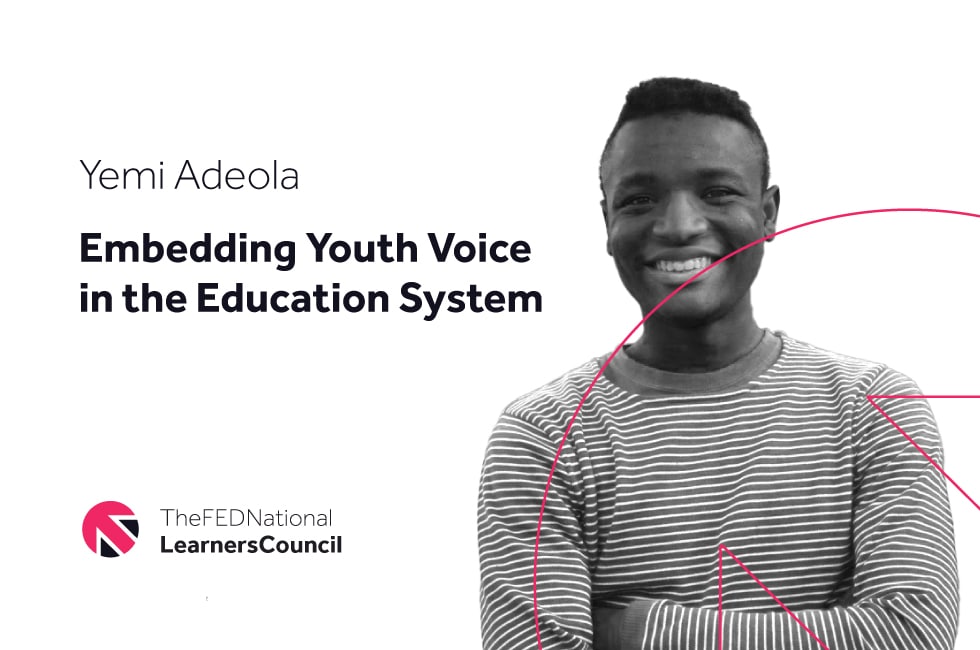We are delighted to be able to share reflections from Yemi Adeola, a member of the FED Learners Council, on his attendance at the Big Change x IPPR (Institute for Public Policy Research) event looking at embedding youth voice in the education system.
Embedding Youth Voice in the Education System
I really enjoyed the Big Change-IPPR Workshop on how to ensure youth voices are central to education policy-making. What stood out for me from the organisers was the importance of collaboration between key stakeholders in England’s education system: students, parents, teachers, think tanks, charities, employers, civil servants and politicians necessary to effect lasting positive change for young people.
I asked Jonathan Slater (former Permanent Secretary at the Department for Education) how collectively, we can resolve barriers to education and he argued this should start with the devolution of power from Westminster/Whitehall regionally. The education system is hierarchical and follows a centralised structure with an instinct to resist change. In his experience as a former Councilor, Jonathan argued that in order to depoliticise education to turn a long-term vision and plan into long-term equitable solutions, teachers on the ground who know more about their state schools than DfE, Councils who know more about local educational attainment challenges than Westminster and young people who know most about the problems in education that affect them, must be empowered through providing more local ownership and autonomy to work towards UN SDG 4. This would enable far more young people to get opportunities to thrive in education based on a bottom-up, decentralised and tailored approach actively including youth, rather than the top-down status-quo.
The discussions confirmed my long-held belief that the over-emphasis on academic grades at all costs, from primary to tertiary-education leading to stress which can cause mental-health problems for young people needs to change. The reason good A-Levels do not equate to labour market productivity in which the UK’s workforce lags behind Germany, France and the US is due to the Education system not focusing on knowledge and skills in equal measure to equip our young people for the world of work. This will only change with outsiders (more young people in public service at all levels or MPs/Cabinet Ministers with qualifications from a wider-range than Russell-Group universities for example) who see things differently and are able to make innovative change such as shifting priorities to focus on well-being, a more holistic education emphasising character-building soft skills (such as adaptability, resilience, teamwork, self-reflection, leadership) as well as academic rigor, vocational training, technical education and apprenticeships.
Young people have a crucial role to play in order to prevent educational impunity by Government: the exercise of power without accountability resulting in abuse (especially as young people under 18 cannot vote). For too long decision-makers have approached the education system with political short-termism whereas young people have paid the price in the long term. IPPR researchers like Mel Wilkes, Big Change Director Caireen Goddard and FED/Youth Leads workshop participants came to the conclusion that youth voices must be involved in policy formulation and implementation from the outset. It was great to see the diversity in age, background, neurodiversity, race and gender of the young people involved at the session, shaping the Big Education Conversation co-lead by Big Change and IPPR. I look forward to the outcome of the research at the end of August!
On routes to engagement:
- Young people want to be involved in high-stakes discussions about issues that matter most to them. ‘Nothing for us (young people) without us’. This needs to be intentionally built into policy making from the outset, especially in education which serve/most affect them as youth bring enthusiasm, energy and a deep commitment to building a fairer, more equitable future in which every young person can thrive in education and beyond.
- Meaningful co-design, where young people are involved in setting priorities and discussion questions, will help to make sure that happens. Young people should be at the heart of everything we do. To transform the lives of young people from underrepresented and underserved communities, we should never believe that it is enough to work for them, treating them as passive recipients of our support. Rather, we need to work with young people, championing them to drive positive change on their own terms.
- Where possible, embedding accountability into decision-making will be key to success. Especially mutual distributive accountability where young people are equal parties given the same powers to scrutinise and keep policy making processes and programmes serving young people in education accountable to the young people they seek to serve. This grassroots bottom-up approach to accountability is crucial in which young people’s questions and concerns are given equal weighting and due consideration.
- There was broad support for all six routes to engagement with a steer that formal advisory groups and roles are most effective if they can be integrated with existing decision-making structures, rather than a separate entity. This will help to capture the wide range of experiences youth advisory boards, bringing this to bear in diversity of thought processes and backgrounds optimising problem-solving and providing more eclectic voices in decision-making – crucial to grounding policy formulation and implementation in the lived experiences of young people. thereby tailored to their needs which are currently unmet in the status quo (a more holistic education including technical or vocational training, well-being, citizenship education, character-building life skills in equal measure to academic knowledge).
On principles:
- We discussed bringing together points on representation + barriers to engagement so as to ensure youth voice and participation. Embedding young people into organisations which have a key role in education at all levels – schools, inspectorates, local councils, central govt, think tanks, charities, social enterprises etc so youth voice never feels tokenistic.
- Youth voice should be inclusive and encouraging for young people, but it is important to recognise power imbalances in school and government structures and avoid using terms like ‘empower’ which may reinforce that dynamic but rather reframe this in a more equitable way such as using terms like ‘co-create’ (not only through words but also through tangible actions – see above points on ‘routes to engagement’ for useful examples of this).
About the Author.
Yemi Adeola – Having graduated from University of Warwick with a BA in History and Politics, Yemi is studying for a MSc in Law, Business and Management at the University of Law. Yemi will take up the role as a Trainee Solicitor at Clifford Chance in 2023. During his studies, he founded a social enterprise called Project Access Midlands which tackled higher educational inequality. He helped launch the charity’s tech-enabled mentorship platform in the US Ivy League as Chief of Staff and previously worked at the Greater London Authority’s Environment Unit.
Yemi serves as a member of the FED Learners Council and is a Trustee at the Young Ealing Foundation which brings together the public, private and grassroots voluntary sectors to effect positive change for young people. Alongside this, he is an Advisory Board Member on the Grants Committee of Youth Futures Foundation, supporting young people furthest away from the labour market into sustained meaningful employment. Previously, Yemi served as the Youngest elected Area Councillor and Board Trustee in the RSA’s +260 year history, representing 10,000 London-based Fellows.



